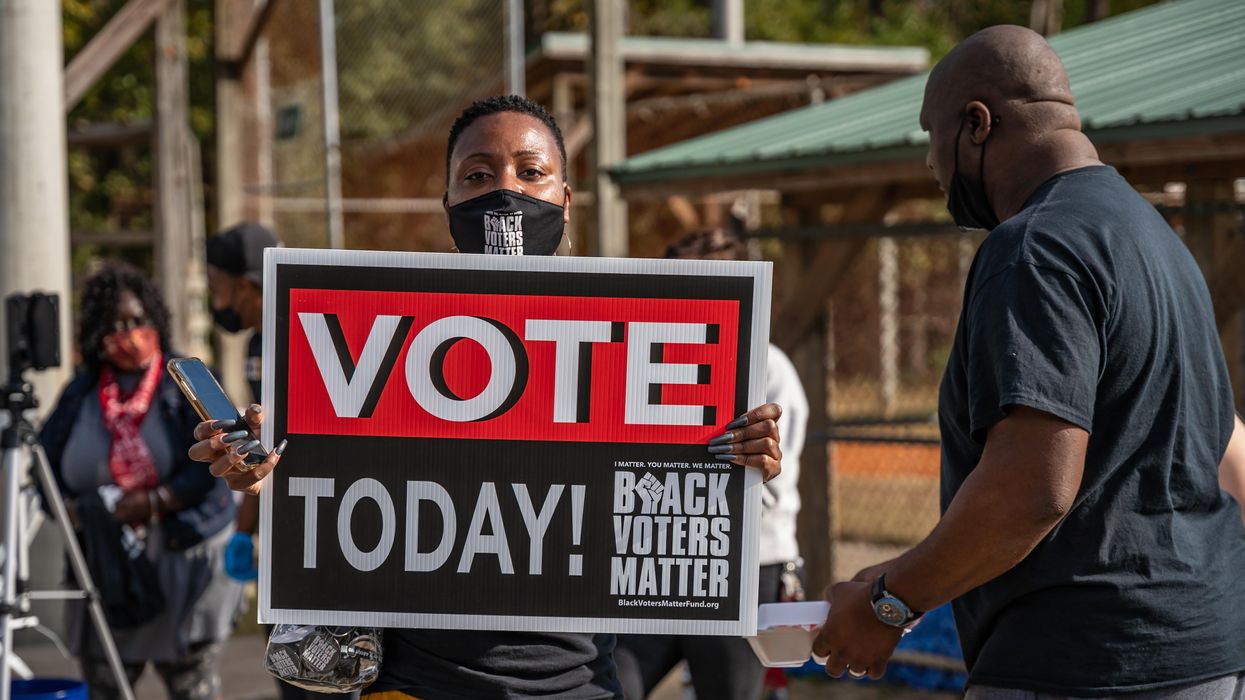Though Georgia's runoff election between Raphael Warnock and Herschel Walker concluded yesterday with a Warnock win, experts are calling into question the need for the runoff system, which was implemented by a segregationist who explicitly sought to disenfranchise Black voters.
Political historian and archivist at the University of Georgia Ashton Ellett told The Washington Post that runoff elections "make it harder for folks who have less resources to vote." The decision to implement the system in Georgia, he added, "wasn’t for a partisan advantage so much as an ideological and cultural one."
In 1963, the Supreme Court ruled that Georgia’s county unit electoral system empowered rural White voters disproportionately compared Black voters. When creating a new system, state representative Denmark Groover proposed using runoffs not just in primary elections, but also in generals.
Professor of history at Rutgers University Steven Lawson said: “When the county system went, people like Groover were looking for ways to make sure that Black voting power was diluted."
At the height of the Civil Rights movement, that SCOTUS ruling was the first of the “one person, one vote” rulings that mandated all vote be counted equally, regardless of race. Denmark sought loopholes through the rulings, as he still blamed Black voters for his reelection loss in 1958.
“[Denmark] had been a leading segregationist. He was the single leading proponent of the county unit system. He sponsored school segregation bills," said J. Morgan Kousser, a historian and social scientist at the California Institute of Technology. Kousser also noted that Denmark sponsored the bill that changed the Georgia state flag, adding the Confederate battle emblem.
Georgia implemented the runoff system, which remained unchallenged until 1990, when the Justice Department and American Civil Liberties Union sued the state for its undue burden on Black voters.
When questioned on his motives at the time, Groover told federal investigators: “I was a segregationist. I was a county unit man. But if you want to establish if I was racially prejudiced, I was. If you want to establish that some of my political activity was racially motivated, it was.”
While the DOJ and ACLU lost their suit, the runoff threshold was changed in 1994, requiring a candidate to receive 45 percent of votes instead of 50 percent. Republicans changed the threshold back in 2008, still fearful from a narrow Senate loss in 1996.
Lawson added: “The creativity of White, Southern politicians, for over 100 years, in figuring out ways to, first, keep Black people from voting and then trying to make it as difficult and burdensome as they can without it appearing racist, and a violation of the Constitution, is breathtaking."
Hillary Holley, executive director of voting rights group Care In Action believes it is beyond time to abolish the antiquated system once and for all.
“It needs to go. It needs to change," she said. "It is a relic of Jim Crow, it is suppressive, inefficient and is also fiscally irresponsible. It needs to just go away.”


















































